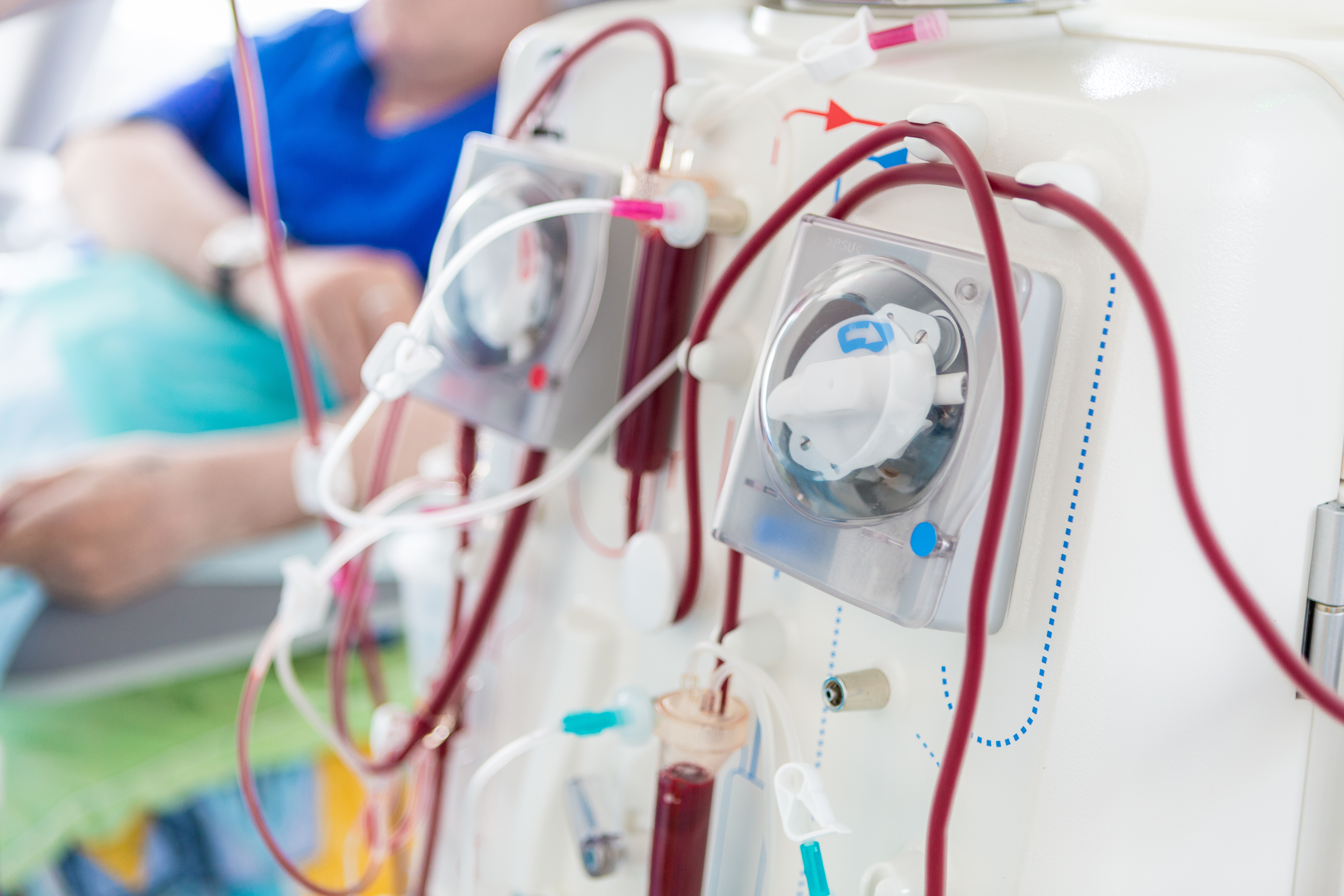Liver Dialysis: An Overview
What is liver dialysis?
When your liver no longer functions properly, toxins such as bile and fatty acids build up because your failing liver can no longer clear them.
Liver dialysis is a detoxifying treatment used for liver failure. Sometimes this procedure is called hepatic dialysis or extracorporeal liver support. Using a machine, liver dialysis can mechanically perform some of the filtering functions your liver would perform if it were healthy and functioning.
Liver detoxification can be a 'bridge' during acute or chronic liver failure to give a patient more time for treatment and recovery or liver transplant.
How does it work?
This treatment is done with an external machine that removes blood from your body through a vein in your arm, then treats and cleans it to remove the toxins, and finally returns the blood to your body.
Patients undergo sessions that typically last 3 to 6 hours.
Who can have a liver dialysis treatment?
Unlike kidney dialysis, which can continue for years, liver dialysis is considered a temporary solution for chronic liver failure.
Typically, this procedure allows patients to manage symptoms of liver failure for several weeks, up to a few months, while waiting for a transplant. Liver dialysis can significantly improve survival chances during this time frame.
It can also be used in cases of acute (sudden) liver failure, where the liver abruptly ceases to function.
What are the types of liver dialysis?
There are several liver dialysis devices that have been invented to artificially detoxify the liver.
- The Molecular Adsorbent Recirculating System (MARS)
- Single Pass Albumin Dialysis (SPAD)
- Prometheus
Each of these artificial liver support systems offers a different set of benefits and deciding which one is best for you should be a part of a conversation with your doctor.
Do we offer liver dialysis?
Yes, The Liver Institute offers liver dialysis as part of our treatment options for liver failure.



